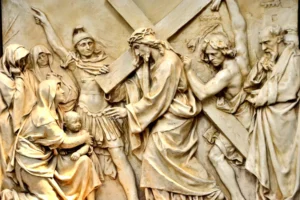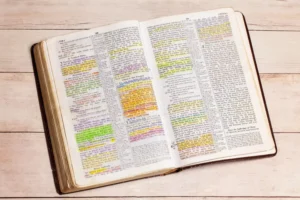Going to college usually means working harder than you’ve ever worked before. People tried to warn me it’d be like that when I first started, but after a lifetime of good grades that came pretty easily, I wasn’t really prepared to listen. Only after my first semester, when I got back a report card bearing the long-unseen letter C (twice!), did the message sink in. I’d have to actually work from now on!
In the professional world, you probably look back nostalgically on the college years as the days when you could take it easy. So with the summer here, it’s time to speak up on behalf of the virtues of vacation.
Yes, virtues. I’ve known people — mostly Christians — who regard any time off as, at best, a concession to human weakness valuable chiefly because it’s necessary to regain the energy to get back to work. I’ve even known Christians who felt vaguely (and sometimes not so vaguely) guilty about taking a break. They torment themselves with questions like: How can we relax and enjoy ourselves when there are so many unsaved people in the world and so many good works crying out to be done? The idea that vacation might be a positive good is the farthest thing from their minds.
That’s a shame, because Christian life isn’t just work; it’s also play. It’s no secret that Jesus went to parties — at least one, anyway. And the book of Ecclesiastes leaves no doubt that the earthly pleasures of life, including things as basic as eating and drinking, are blessings “from the hand of God” (Ecclesiastes 2:24).
Of course we’re not to seek pleasure in the wrong things, or in the wrong ways, or at the wrong times. Much less should we seek the meaning of life in pleasures, for that would be foolish idolatry (the main theme in Ecclesiastes). But take them for what they’re meant to be and they’re good things. There’s “an appointed time for everything … a time to weep and a time to laugh; a time to mourn and a time to dance” (Ecclesiastes 3:1, 4).
This isn’t a call to neglect our duties. It’s a call to recognize that our duties are finite. Repeat after me: I’m not supposed to take the weight of the world on my shoulders, as if I believed deep down — beneath all my talk about God being in control — that He can’t run the show without me. I serve Him as a result of my faith, and it’s a privilege and a source of joy that He gives me good works to do. It pleases Him to work that way. But He doesn’t need me to work His will in the universe. He made me to experience not just times of labor in this life, but also times of peace.
I won’t attempt to get into just which duties we need to do before we can take a break; that’s a whole other discussion that goes back at least to the Reformation, having to do with what offices we hold in life. For now, we’re just talking about the fact that we should take some breaks and about what we do with them.
So what do we do with them? This will vary a lot from person to person, but whatever we do, I think it’s important not to overschedule. Some of us spend too much of our time racing from one scheduled event to another, needing to be in a particular place at a particular time doing particular things. Summer vacations and holiday breaks should allow for less structure and more freedom — for time to take walks or climb rocks or what have you, without any agenda or goal besides wholesome enjoyment or relaxation.
Ironically, I’ve found that it’s at just these times that I end up doing some of my best thinking, precisely because I’m not trying.
When I take a walk — not because I’m trying to get anyplace or to raise my heartrate, but simply because I enjoy it — I’m reminded of the beauties of God’s creation, of both the love and the power of the One Who made it. When I have no deadlines pressing in on me, I can finally take a long-term view of my life, seeing more clearly my sins and weaknesses, as well as my blessings. I can face errors (not just what I’ve committed, but what I’ve omitted) that in my times of stress I tend to deny, rationalize or shove aside. I can better recognize (though still perceiving only a fraction of the reality) God’s hand at work in events over a long period of time, and I can marvel at how He’s been at work in unexpected ways throughout them all.
The more I think about it, the more I think the pace of modern life is one of the devil’s chief weapons. C.S. Lewis thought as much about 60 years ago. In The Screwtape Letters, a devil recalls how he deterred a nonbeliever who was starting to seriously consider Christianity. Instead of choosing any especially intellectual or spiritual attacks, the devil simply moved to get the man out of the library where he’s reading a Christian author and into the street.
Once he was in the street the battle was won. I showed him a newsboy shouting the midday paper, and a no. 73 bus going past, and before he had got to the bottom of the steps I had got into him an unalterable conviction that, whatever odd ideas might come into a man’s head when he was shut up alone with his books, a healthy dose of ‘real life’ (by which he meant the bus and the newsboy) was enough to show him that all ‘that sort of thing’ just couldn’t be true.
Since Lewis wrote, life has gotten even busier for most of us. All the more reason to step off the merry-go-round for a while, to get away from all the appointments and assignments and noise. When you’re not trying to work is when God does some of His best work in you.
Copyright 2003 Matt Kaufman. All rights reserved.












